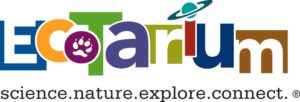Clark University to partner with museum on ‘City Science’ exhibit
 A $250,000 National Science Foundation (NSF) grant will be used to develop “City Science,” an interactive exhibit at the EcoTarium. The grant was awarded to a team of researchers led by Robert L. Ryan, professor of landscape architecture and regional planning at the University of Massachusetts in Amherst. Additional partners includeClark University and Loyola Marymount University in Los Angeles.
A $250,000 National Science Foundation (NSF) grant will be used to develop “City Science,” an interactive exhibit at the EcoTarium. The grant was awarded to a team of researchers led by Robert L. Ryan, professor of landscape architecture and regional planning at the University of Massachusetts in Amherst. Additional partners includeClark University and Loyola Marymount University in Los Angeles.
The collaboration with exhibit designers and science educators at the EcoTarium, New England’s leading science and nature center, is funded as a pilot grant from the NSF’s Advancing Informal STEM (Science, Technology, Engineering and Math) Learning program. The museum, at 222 Harrington Way in Worcester, attracts nearly 150,000 visitors each year.
“This grant allows us to work with researchers to bring incredible science to our visitors,” said EcoTarium President Joseph Cox. “We will create innovative ways to engage our visitors in conversations about building a better city and share this exciting work with science museums nationwide.”

The project, “From the Lab to the Neighborhood: An Interactive Living Exhibit for Advancing STEM Engagement with Urban Systems in Science Museums,” will develop prototype exhibits about the science people encounter in their everyday lives, but rarely stop to consider: What keeps our buildings and bridges standing? What is the hidden infrastructure that brings water in and out of our houses? What is a better solution for a problem road intersection? How do trees affect temperature — and our air conditioning bills?
Using Worcester as a backdrop, the exhibit will explore the connections between cities and the people, plants, and animals that live in them. With hands-on experiment stations, visitors of all ages will discover these connections from different perspectives in a city — above, below, and street-level.
School children to take part in the social research process
“From the Lab to the Neighborhood” breaks new ground by asking museum visitors, including school children, to participate in the social science research process, an area that has received less attention in many science museums. The project builds on existing urban ecology research conducted by the UMass/Amherst environmental conservation department.
“I’m pleased that this federal grant will allow the EcoTarium to further their innovative work and harness local partnerships to bring cutting-edge research on urban ecology to a wide range of people,” said Congressman Jim McGovern. “This program will be used as a model for others across the country, enhancing the EcoTarium’s reputation as a hub for pioneering scientific education.”
Co-principal investigator Colin Polsky, Associate Professor of Geography at Clark University, will provide technical assistance and engage Clark students in some of the prototyping activities.
“This exciting award serves as another illustration of how Clark University’s LEEP program can create 21st-century learning opportunities for undergraduate students,” said Professor Polsky. “Here, a cutting-edge NSF research project will be brought into the classroom, and students will have the opportunity to shape the outcome. In the process, students will develop valuable team-building, communication, and project-management skills. The goal is to develop students’ abilities to manage complexity and uncertainty alongside their knowledge of urban ecology.”
Curriculum will connect teachers and students to scientific process
The project will also integrate an NSF-funded K-12 urban ecology curriculum into the exhibit, using the results from the prototyping to inform new curriculum modules. Led by project team member Eric Strauss of Loyola Marymount University in Los Angeles, this new curriculum will let science teachers and their students try out the exhibit prototypes as they are being developed and learn about the scientific research process. Ultimately, these lessons will allow urban children to see the city around them as an ecology laboratory.
National impact on museums
“From the Lab to the Neighborhood” is seen as a pilot for a national model to bring urban ecology research to science museums across the country. It will bring together staff from six other science museums in California and New England to review the exhibit prototypes, and to discuss how their museums can develop new urban ecology exhibits. This pilot project builds on preliminary City Science exhibit planning already conducted by the EcoTarium staff and focuses on trying out these new exhibit ideas with visitor feedback. This study will inform the permanent exhibition, for which the EcoTarium is currently pursuing funding to complete.
About the EcoTarium
EcoTarium is New England’s leading science and nature center, an indoor-outdoor experience dedicated to inspiring a passion for science and nature in visitors of all ages. The center offers a museum building with three floors of interactive exhibits and is home to live animal habitats, interpretive nature trails through forest and meadow, the Alden Digital Planetarium, a tree canopy walkway (seasonal) and a narrow-gauge railroad. The EcoTarium, located at 222 Harrington Way in Worcester, Mass., is open Tuesday through Saturday from 10 a.m. to 5 p.m.; Sundays 12 to 5 p.m. Admission is $14 for adults, $8 for children 2-18, $10 for seniors 65+ and students with ID. WOO card holders receive $2 off one adult admission and $1 off one planetarium show. Parking is free. For more information, visit www.ecotarium.org.
About the National Science Foundation
The National Science Foundation (NSF) is an independent federal agency created by Congress in 1950 “to promote the progress of science; to advance the national health, prosperity, and welfare; to secure the national defense…” With an annual budget of about $7.0 billion (FY 2012), we are the funding source for approximately 20 percent of all federally supported basic research conducted by America’s colleges and universities. In many fields such as mathematics, computer science and the social sciences, NSF is the major source of federal backing.
Founded in 1887 in Worcester, Massachusetts, Clark University is a liberal arts-based research university addressing social and human imperatives on a global scale. Nationally renowned as a college that changes lives, Clark is emerging as a transformative force in higher education today. LEEP (Liberal Education and Effective Practice) is Clark’s pioneering model of education that combines a robust liberal arts curriculum with life-changing world and workplace experiences. Clark’s faculty and students work across boundaries to develop solutions to complex challenges in the natural sciences, psychology, geography, management, urban education, Holocaust and genocide studies, environmental studies, and international development and social change. The Clark educational experience embodies the University’s motto: Challenge convention. Change our world.
